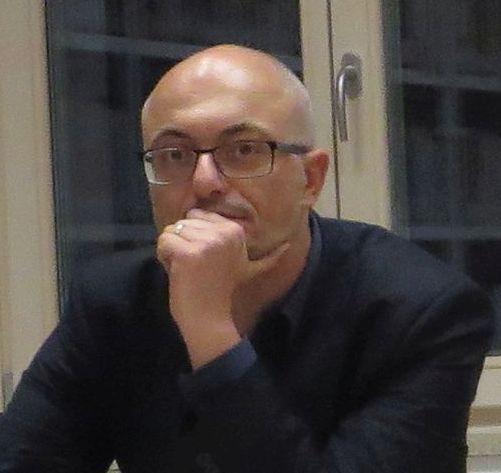Studying at the University of Verona
Here you can find information on the organisational aspects of the Programme, lecture timetables, learning activities and useful contact details for your time at the University, from enrolment to graduation.
Academic calendar
The academic calendar shows the deadlines and scheduled events that are relevant to students, teaching and technical-administrative staff of the University. Public holidays and University closures are also indicated. The academic year normally begins on 1 October each year and ends on 30 September of the following year.
Course calendar
The Academic Calendar sets out the degree programme lecture and exam timetables, as well as the relevant university closure dates..
| Period | From | To |
|---|---|---|
| 1° semestre lezioni a Trento | Sep 13, 2021 | Dec 22, 2021 |
| 1 A | Sep 27, 2021 | Nov 6, 2021 |
| 1 B | Nov 15, 2021 | Jan 12, 2022 |
| 2° semestre lezioni a Trento | Feb 14, 2022 | May 27, 2022 |
| 2 A | Feb 14, 2022 | Mar 26, 2022 |
| 2 B | Apr 4, 2022 | Jun 4, 2022 |
| Session | From | To |
|---|---|---|
| Sessione d'esame invernale | Jan 10, 2022 | Feb 12, 2022 |
| Sessione d'esame estiva | Jun 6, 2022 | Jul 23, 2022 |
| Sessione d'esame autunnale | Aug 29, 2022 | Sep 24, 2022 |
| Session | From | To |
|---|---|---|
| Sessione straordinaria (a.a. 2020/21) | Mar 28, 2022 | Apr 2, 2022 |
| Sessione estiva | Jul 11, 2022 | Jul 16, 2022 |
| Sessione autunnale | Nov 7, 2022 | Nov 12, 2022 |
| Sessione straordinaria | Mar 31, 2023 | Apr 6, 2023 |
| Period | From | To |
|---|---|---|
| Festività natalizie | Dec 24, 2021 | Jan 2, 2022 |
| Festività pasquali | Apr 15, 2022 | Apr 19, 2022 |
| Festività Santo Patrono di Verona | May 21, 2022 | May 21, 2022 |
| Chiusura estiva | Aug 15, 2022 | Aug 20, 2022 |
Exam calendar
Exam dates and rounds are managed by the relevant Culture and Civilisation Teaching and Student Services Unit.
To view all the exam sessions available, please use the Exam dashboard on ESSE3.
If you forgot your login details or have problems logging in, please contact the relevant IT HelpDesk, or check the login details recovery web page.
Should you have any doubts or questions, please check the Enrollment FAQs
Academic staff

Bassetti Massimiliano
 massimiliano.bassetti@univr.it
massimiliano.bassetti@univr.it
 045802 8376
045802 8376
 giovanni.bernardini@univr.it
giovanni.bernardini@univr.it
 giovanni.ciappelli@univr.it
giovanni.ciappelli@univr.it
 giorgia.proietti@unitn.it
giorgia.proietti@unitn.it
 cecilia.sideri@univr.it
cecilia.sideri@univr.it
Study Plan
The Study Plan includes all modules, teaching and learning activities that each student will need to undertake during their time at the University.
Please select your Study Plan based on your enrollment year.
1° Year
| Modules | Credits | TAF | SSD |
|---|
Medieval History, History of Christianity and Churches
Contemporary History I - LM
Early Modern History I - LM (Historical Anthropology)
History of Science and Technology - LM
History of Political Institutions II
History of Political Thought
History of Medieval Art I
Medieval Latin Literature II
Digital tools for historical research
2° Year activated in the A.Y. 2022/2023
| Modules | Credits | TAF | SSD |
|---|
| Modules | Credits | TAF | SSD |
|---|
Medieval History, History of Christianity and Churches
Contemporary History I - LM
Early Modern History I - LM (Historical Anthropology)
History of Science and Technology - LM
History of Political Institutions II
History of Political Thought
History of Medieval Art I
Medieval Latin Literature II
Digital tools for historical research
| Modules | Credits | TAF | SSD |
|---|
Legend | Type of training activity (TTA)
TAF (Type of Educational Activity) All courses and activities are classified into different types of educational activities, indicated by a letter.
Early Modern History and Methodology of Historical Research - PARTE I (2022/2023)
Teaching code
4S003237
Teacher
Credits
6
Language
Italian
Scientific Disciplinary Sector (SSD)
M-STO/02 - MODERN HISTORY
Period
2° semestre Trento dal Feb 20, 2023 al Jun 1, 2023.
Location
TRENTO
To show the organization of the course that includes this module, follow this link: Course organization
Prerequisites and basic notions
Good knowledge of at least one period among medieval, early modern, and modern history. Students will be expected to actively participate in discussions, having read and being prepared to comment upon the sources and studies under consideration.
Program
"Use and interpretation of sources: the letter from the Middle Ages to the 20th century".
The course will deal with the letter as a means of expression and communication of different contents at different times: political communication and information in general (diplomatic, commercial, private letters), expression of feelings of friendship and affection; narration of one's own thoughts and actions to the other, which also includes aspects of the self. The letter is one of the most common documents available to the historian in all ages, and has recently become part of the larger category of egodocuments (writings of various kinds in which an individual tells about himself), which is increasingly attracting the historians' attention. In any case, it corresponds to a literary genre, with specific rules, which may vary from period to period, and requires nuanced interpretations that must take into account the context, the nature and purpose of sender and recipient, and the writing style of the time. The course will present public and private collections of letters from the 14th to the 20th century, trying to capture recurring elements and evolutionary traits and to put them in relation with the possible uses by the historian.
The following list is just an indication. The full list of texts will be given by the professor during the course. Non-attending students must in any case contact the professor to ask for the exam program.
A. Petrucci, Scrivere lettere. Una storia plurimillenaria, Roma-Bari, Laterza, 2008;
Per lettera. La scrittura epistolare femminile tra archivio e tipografia, secoli XV-XVII, Roma, Viella, 1999;
G. Ciappelli, La lettera come fonte storica: tre esempi di carteggi tardomedievali e moderni: Francesco Datini, Lorenzo de' Medici, il "Mediceo del Principato", in "Quaero ex tuis litteris". Carteggi fra basso medioevo ed età moderna. Pratiche di redazione, trasmissione e conservazione, a cura di A. Giorgi, K. Occhi, Bologna, il Mulino, 2018, pp. 299-321.
Dolce dono graditissimo. La lettera privata dal Settecento al Novecento, a cura di M.L. Betri e D. Maldini Chiarito, Milano, Angeli, rist. 2003.
Didactic methods
The course will be a seminar course, and therefore foresees the reading and comment, with the participation of students, of sources that are gradually analyzed. Parts of published sources, or pictures of the handwritten versions of some texts will be analyzed with the help of Power Point. The professor will gradually assign readings of particular texts, and students will take care to read them in time so as to encourage a better active participation.
Learning assessment procedures
The exam will be composed of:
1. an ORAL EXAM, based on knowledge of assigned readings (see “Assigned readings”), material distributed during lessons and (for attending students) class notes;
2. a WRITTEN ESSAY of 40-50,000 characters (including notes) on a topic agreed with the professor. Papers must be sent to the professor at least two weeks in advance of the oral exam, in ways agreed upon with the professor during office hours.
Type D and Type F activities
COMPETENZE TRASVERSALI
Modules not yet included
Career prospects
Module/Programme news
News for students
There you will find information, resources and services useful during your time at the University (Student’s exam record, your study plan on ESSE3, Distance Learning courses, university email account, office forms, administrative procedures, etc.). You can log into MyUnivr with your GIA login details: only in this way will you be able to receive notification of all the notices from your teachers and your secretariat via email and soon also via the Univr app.
Linguistic training CLA
Double degree
The University of Verona, through a network of agreements with foreign universities, offers international courses that enable students to gain a Double/Joint degree at the time of graduation. Indeed, students enrolled in a Double/Joint degree programme will be able to obtain both the degree of the University of Verona and the degree issued by the Partner University abroad - where they are expected to attend part of the programme -, in the time it normally takes to gain a common Master’s degree. The institutions concerned shall ensure that both degrees are recognised in the two countries.
Places on these programmes are limited, and admissions and any applicable grants are subject to applicants being selected in a specific Call for applications.
The latest Call for applications for Double/Joint Degrees at the University of Verona is available now!
Graduation
List of theses and work experience proposals
| theses proposals | Research area |
|---|---|
| Ambiti di tesi | Art & Architecture - Art & Architecture |
Student mentoring
Student login and resources
Manifesto degli studi
Manifesto degli studi del CdLM interateneo in Scienze storiche
Documents
| Title | Info File |
|---|---|
|
|
pdf, it, 466 KB, 26/02/24 |
|
|
pdf, it, 456 KB, 26/02/24 |
























